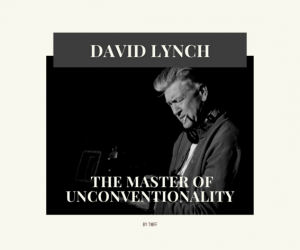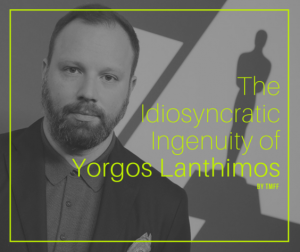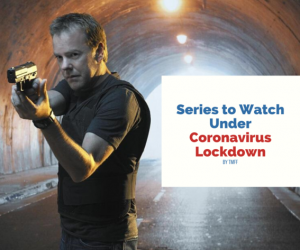Unless you’ve been living under a rock, True Detective is back since mid-January… and more than half of the new season is already gone. So, I thought that before it’s all over and we once again have to get used to the prospect of waiting several years until we get a fourth season, it would be nice to remember the series in perspective. In case you do live under the aforementioned rock, each season of True Detective switches its story, location and characters, but keeps true to its overarching themes and dark style.
Season 1 (2014)
The show started off strong, casting both Matthew McConaughey and Woody Harrelson, and really making the most of it. It had to start off strong, mind you, with a name like ‘True Detective’ – I’ve since warmed up to it, but in my mind it ended up being the only uninspired decision about the first season. Both the main characters were partners, and within the first couple of minutes, we already had a dead body and thus a murder that needed investigation. The story gradually unfolded over two timelines, and they were woven together in a way that not only achieved a perfect balanced, but ensured that one arc complemented the other, and vice versa.
The rural or small town setting, omnipresent throughout the entire season, clicked well with the two characters, who interpreted society, habits and spirituality in largely divergent ways – the dark philosophical undertones have since become a trademark of the series, and I often find myself coming back to relive some of Rust’s monologues as representation of near-perfect writing and cinematography.
Season 2 (2015)
Somewhat taken aback by the first season’s success, the series’ creator, Nic Pizzolatto, felt obliged to step in and deliver high quality material again. The problem was that whatever followed would have an almost impossible task of delivering material different from, and yet on par with the first season, which was still fresh in the audience’s mind. Thus, expectedly so, the reception for season two mas mixed – some (myself included) appreciated it for what it was, others cried in their corner because it looked and felt nothing like season one.
The casting of the two leads was a very interesting, if slightly odd one – both Colin Farrel and Vince Vaughn are widely known for their role in comedies, so seeing them as the main characters in something that is the mother of all dark and serious stories was difficult to get used to at first. However, they both did a wonderful job – they were not polar opposites complementing one another, as Marty and Rust did in season one, but their moments of thematic intertwining were still something to behold. Season two was a bit more dynamic and action-oriented, or at least it felt this way because of its choice of environment. Taking place in California, the rural landscapes of season one were replaced by a sleazier, if equally depressing neon-lit industrial landscape – more light in a similar metaphoric darkness.
Season 3 (2019)
Pizzolatto certainly learned his lesson from the sins of season two, as he was patient enough and waited nearly four years for his next move. From the get-go, season three looked more like a return to the series’ roots than the hybrid, ballsy season two that got sandwiched between them. The two detectives working as partners trope was back, a murder took place before the first episode’s credits rolled, and the separate timelines also made a triumphant return. This time, however, True Detective weaves three separate timelines together, and places more emphasis on one of the two leads – Mahershala Ali over Stephen Dorff – at least for now.
Just like season one, the current season also uses the technique of unreliable narration to deepen the mystery, but also has other tricks up its sleeve. First, it also uses the topic of race throughout all of its timelines, without fluttering it in plain view and making it the central topic of the story. Second, it plays around with the theme of memory, which occupies a special and slightly different place in each of the three interconnected timelines. Unfortunately, the philosophical focus has been rather limited so far – if you have a good memory and you’re paying close attention to the story, you can see some of Rust’s nihilistic musings from season one quite vividly on display in a case study sort of fashion. But as for its own quotes, season three started off well with ‘You know how many times rats almost ended civilization?’, but has since not delivered much in this direction. Time will tell whether or not we’ll see a change.
















